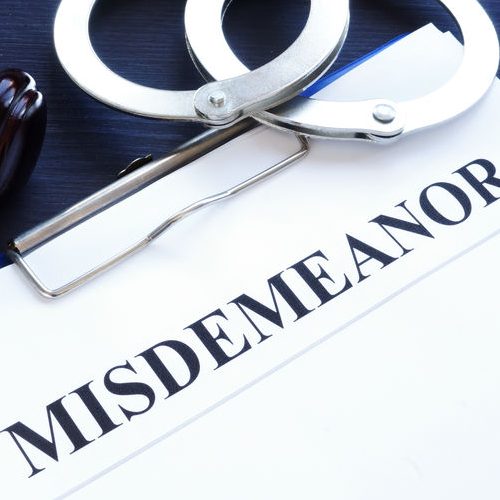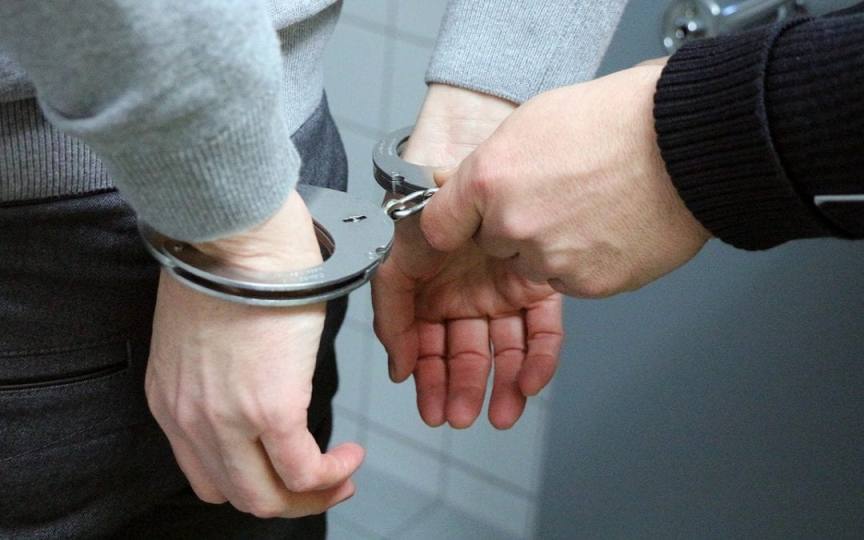Crimes are classified differently under the law and the two main categories are felonies and misdemeanors. Felonies are considered to include crimes of a more serious nature whereas misdemeanors are not as serious. However, they are both breaking the law and the difference between the two lies mainly in how the crimes are prosecuted and the penalties that are applicable for committing the specific crime.
1. Misdemeanors
Court Procedure
A prosecutor will decide what charges and penalties are applicable when you have been charged with a misdemeanor and will then set an arraignment. At the arraignment, you will be informed of the charges that have been brought against you and be asked to enter a plea of guilty or not guilty.
If you enter a plea of guilty or no contest, the court will enter a decision of guilty or not guilty and sentencing will follow in accordance with the penalties or plea bargain that was agreed upon with the prosecutor. A guilty or no contest plea is commonly only recommended where the prosecutor allows the defendant to plead to a lesser charge or where they will receive a reduced sentence.
If you enter a plea of not guilty, the case will go to pretrial where plea bargaining can take place and evidence collected by the prosecutor presented in order to determine if there is sufficient evidence for the case to go to trial. A judge or jury will make a decision as to guilt or innocence. In the case of a jury trial, the judge will deliver sentencing.
Related: Benefits of Hiring a Criminal Record Expungement Attorney
Penalties And Sentencing
Misdemeanors commonly do not receive sentencing of more than 1 year jail time and/or fines in excess of $1,000. However, this does differ from state to state and is dependent upon the discretion of the judge. Federal guidelines for sentencing include:
- Class C misdemeanor a maximum of 30 days but no less than 5 days in jail.
- Class B misdemeanor a maximum of 6 months but no less than 30 days in jail.
- Class A misdemeanor a maximum of 12 months but no less than 6 months in jail.
Sentences are normally carried out in county jail rather than a state or federal prison. Being convicted of a misdemeanor will result in a permanent criminal record.
2. Felonies
Court Process
The first step after being arrested on a felony charge is a bail hearing where the charges will be heard and bail set. The next step is a preliminary hearing where a judge will decide whether the prosecutor has viable cause or evidence to charge you with the crime. The third step is the arraignment where you will be informed of the charges that have been brought against you and asked to enter a plea of guilty or not guilty.
A sentencing hearing will be scheduled after a guilty plea. A trial will commence if a plea of not guilty is entered where a judge and jury will preside over the case. The jury will decide unanimously and beyond a reasonable doubt as to the guilt or innocence of the defendant. The judge may schedule a sentencing hearing where a sentence will be handed down.
Sentencing And Penalties
Sentences are normally served in a state or federal prison or penitentiary rather than a county jailhouse. Sentences can range anywhere from 3 months to life imprisonment. A person who has been found guilty of a felony may be sentenced to death on states that allow for the death penalty. Felony sentencing may include fines.
It is advisable to contact a criminal defense lawyer whether you have been charged with a misdemeanor or a felony. Also, be aware that there are some circumstances under which a misdemeanor can become a felony charge.

